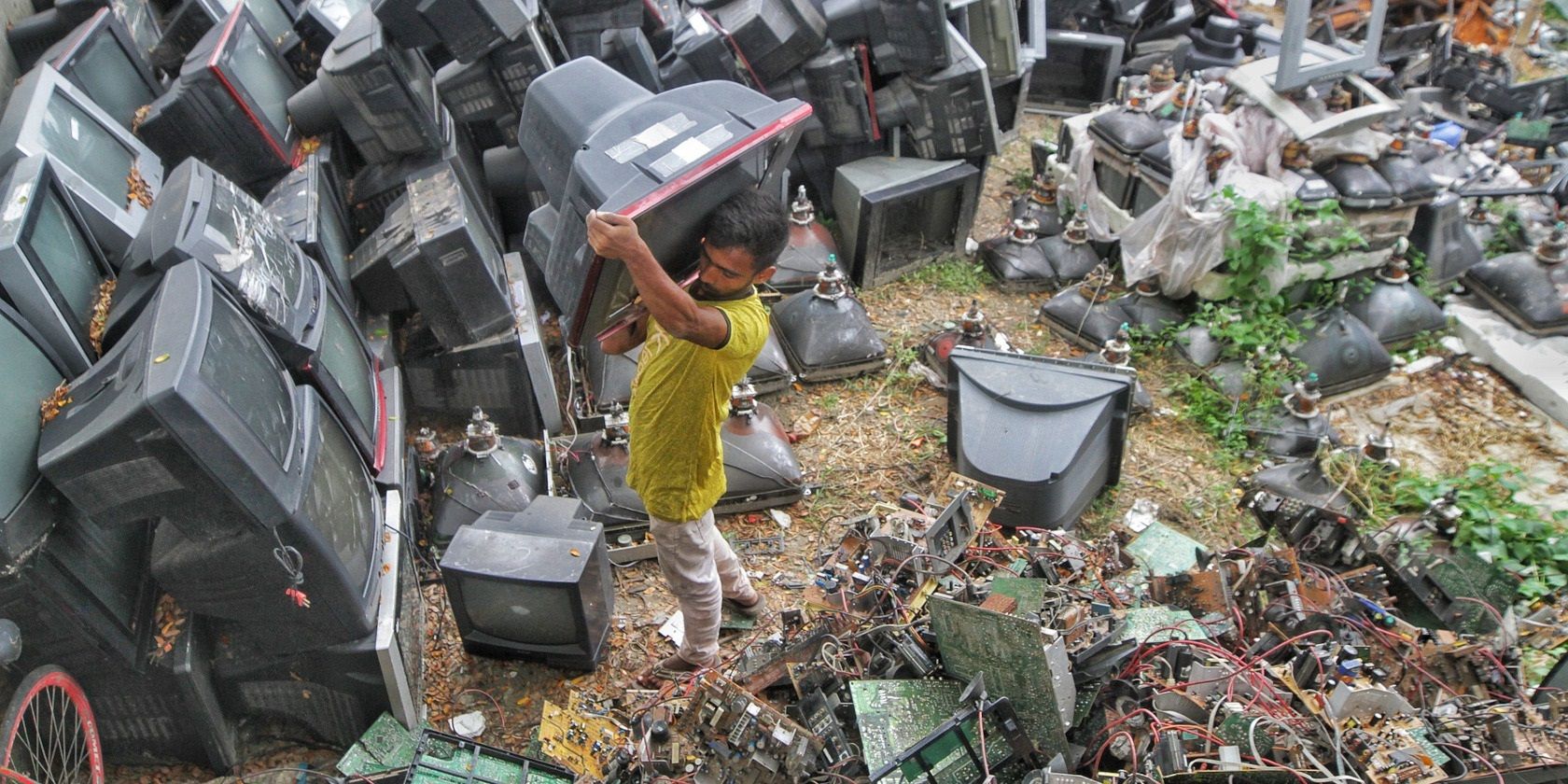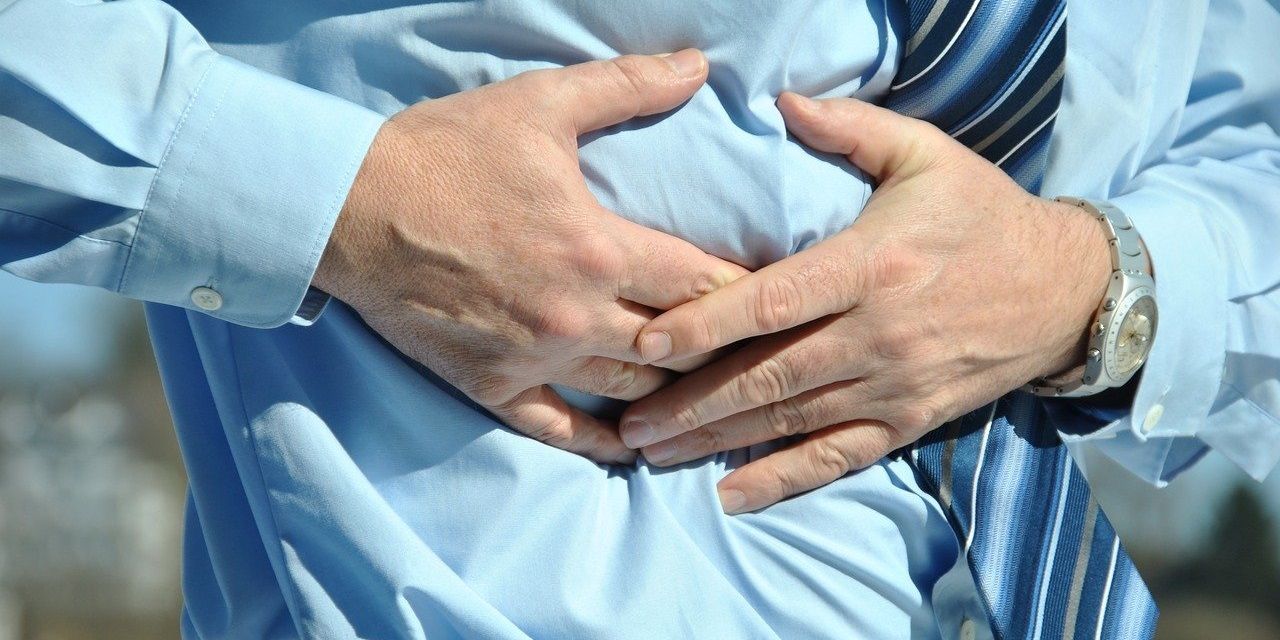We're often careful about how we treat biological waste. But how do you dispose of your spoilt phones, tablets, batteries, calculators, TVs, and old PCs? All these gadgets constitute electronic waste, also known as e-waste.
E-waste adds a significant amount of e-plastics, nanoparticles, and heavy metals like lead and mercury to the environment.
You might not have paid attention to the dangers of e-waste in the past. But here are some of its damaging effects—and they're even scarier than you may think.
1. E-Waste Disrupts the Plant Root Microbiota
While there are millions or even billions of microorganisms in the environment, only a few of them threatens human, animal, and plant health. The majority of them are either harmless or beneficial in one way or another.
A notable role of beneficial microorganisms in the soil is that they help with nutrient cycling. They do this through a symbiotic relationship with plant roots, where they fix nitrogen, degrade manures, prevent root diseases, and make food readily available for plant growth.
However, beneficial root microbes may die if the soil contains toxic chemicals resulting from incessant e-waste disposal.
In addition to being toxic to beneficial microbes, when found in plant tissues, heavy metals and electrical components like lead, mercury, selenium, copper, and nanoparticles from e-waste are directly hazardous to plant health. They do this by destabilizing microbial balance in nature, killing them, and disrupting the nutrient cycling to plants.
Thus, stunted growth, lack of essential nutrients, and plant poisoning are all attributes of e-waste dumpsites and environments close to them. Invariably, whether instantly or later, this event contributes to poor atmospheric air circulation and soil infertility.
2. E-Waste Disorganizes the Food Chain
As plant root becomes imbalanced and beneficial soil microorganisms reduce, other organisms like the earthworm that live on them may starve to death. Alternatively, they might even suffer dehydration due to poor soil water retention—which is typical of soil devoid of beneficial microbes.
Similarly, as the plant community suffers depletion from e-waste poisoning and poor nutrient cycling, animals that depend on them for food could also starve. So, carnivores could lose most of their food supply due to either death or possible migration.
3. E-Waste Contaminates Underground and Surface Water
E-waste doesn't often remain wherever you dump it. Metallic parts and nanoparticles from it can scrape off and find their way into water bodies, too.
In essence, erosion and flood can wash off metals and nanoparticles from e-waste into surrounding water bodies. Additionally, heavy metals can sink deep into the ground and contaminate underground water. Invariably, this underground water also washes into bigger water bodies.
A more disturbing scenario is when e-waste-associated metals dissolve in water and mix with it. Although you might not drink direct surface water, you're damaging the aquatic system when you dump e-waste into the environment.
Ultimately, e-waste can contribute to low fish yield and water plant intoxication resulting from high heavy metal concentration and oxygen depletion in the water.
4. The Bioaccumulation of Toxic Chemicals in Organs
Lead and mercury poisoning are some of the most feared health conditions in the world today. Although the fuel-use efficiency of modern vehicles keeps these substances at bay, the amount that accumulates in the human body from e-waste mismanagement isn't negligible.
Bioaccumulation starts when plants absorb these toxic chemicals into their tissues. And when found in water bodies, fishes can ingest a significant amount of lead into their tissue.
Invariably, animals and humans who eat such plants or fishes get a share of these toxic chemicals. And these accumulate over time until there's enough to poison vital organs—notably the kidney and the liver.
5. E-Waste Can Contribute to the Development of Cancer and Other Terminal Diseases
Intoxication of vital body organs can result in many underlying ailments and terminal diseases.
However, long-term exposure to e-waste not only affects adults but poses a significant health risk to neonates. They're even at a greater risk as they have a more vulnerable immune system.
Exposure to e-waste has, unfortunately, resulted in stillbirth in some reported cases. Lead poisoning, for instance, can also cause permanent deafness in children.
Additionally, the World Health Organization has warned that exposure to e-waste can result in DNA disruption, thyroid malfunction, lung diseases, and terminal ailments like cancer and heart-related problems.
6. People Smuggle and Unethically Recycle E-Waste
As the need for electrical raw materials like lead and copper increases, people who want to make some cash from them sometimes go as far as recovering them from e-waste dumpsites.
According to WHO, such practices can expose the people involved to more than a thousand lethal chemicals—including heavy metals. This is common in most middle to low-income countries, where people smuggle and recycle e-waste for money.
While this may look like a promising way to get e-wastes off the environment, most of these recoveries are unethical and practically unsafe. And in the event where they recycle them, a significant load of deposition of heavy metals and nanoparticles to the lungs is often unavoidable.
7. E-Waste Disposal Threatens Data Security
Data security is as important to individuals as much as it is to businesses.
Although you might have disposed of your spoilt computer, hard disk, or smartphone, you can't tell who might be sniffing.
Whether they're personal, business-related, or publicly accessible, you store a lot of information on your devices. Throwing them away immediately after they get spoilt isn't the best data security practice.
Even if you think you've wiped them clean, some residual but sensitive data may still lurk around. So, someone with an ulterior motive could steal your information.
Therefore, to avoid losing sensitive information to electronic disposal, you should consider taking them to environmentally certified recycling companies, where your data is safer.
What You Should Do With E-Waste Instead
Not paying attention to e-waste is one of the factors that stalls the human fight against environmental degradation, global warming, terminal ailments, and species extinction.
Considering the risk of e-waste in the environment, it's necessary to reduce it so that it doesn't continue to wreak havoc. Therefore, consider recycling your e-waste in a certified recycling industry. Alternatively, transform it into other valuable home tools instead.




